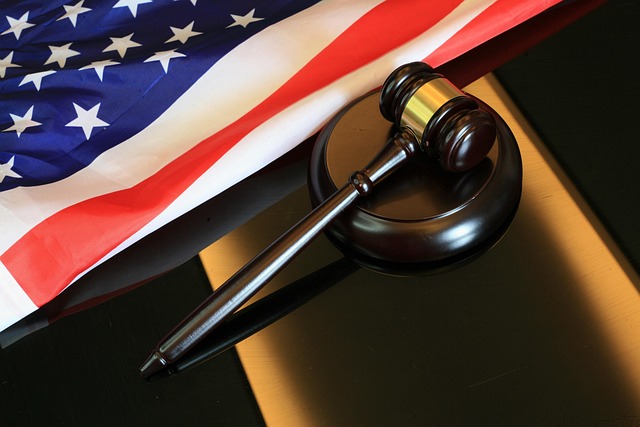Navigating Environmental Disputes: Litigation Support Services for Success

Environmental Regulation Violations carry severe legal repercussions, making Legal Assistance for En…….
In an era where environmental concerns are at the forefront of global discourse, understanding and ensuring adherence to environmental regulations is more crucial than ever. Legal Assistance for Environmental Regulation Violations refers to the array of services, mechanisms, and strategies employed to support entities in meeting their legal obligations regarding environmental protection. This comprehensive guide delves into the intricacies of this field, exploring its historical foundations, global impact, economic implications, technological advancements, regulatory frameworks, challenges, successful implementations, and future prospects. By examining these aspects, we aim to equip readers with a holistic understanding of how legal assistance plays a pivotal role in fostering environmental compliance and accountability.
Legal Assistance for Environmental Regulation Violations encompasses a range of services designed to help individuals, organizations, and governments navigate complex environmental laws and regulations. It includes:
The concept of legal assistance in environmental matters has evolved over several decades, driven by increasing awareness of ecological issues and the need for stricter regulation. In the 1970s, significant environmental disasters like the Love Canal and Bhopal incidents sparked global concern, leading to the establishment of stringent environmental laws. This era marked the beginning of specialized legal services focused on environmental compliance.
Over time, as environmental regulations became more complex, so did the need for expert legal assistance. The development of international agreements, such as the Montreal Protocol and Paris Agreement, further underscored the importance of transboundary cooperation in environmental governance. Today, legal assistance plays a pivotal role in helping businesses, governments, and citizens understand and meet their environmental responsibilities, ensuring sustainable development while mitigating legal risks.
The impact of Legal Assistance for Environmental Regulation Violations extends far beyond national borders due to the global nature of environmental issues. International agreements and treaties create a framework for transboundary cooperation, requiring businesses operating across jurisdictions to adhere to consistent environmental standards. For instance, multinational corporations require legal assistance to navigate the intricate web of regional and international regulations, ensuring they meet their obligations in every market they serve.
Legal Assistance for Environmental Regulation Violations is a significant market segment within the broader legal services industry. The increasing stringency of environmental regulations has led to a rise in demand for specialized legal expertise. This trend is evident in the growing number of law firms and consulting companies offering environmental compliance services, as well as the establishment of dedicated environmental practice areas within larger legal entities.
Investor concerns about environmental, social, and governance (ESG) factors have gained prominence, influencing investment decisions. Legal assistance plays a crucial role in helping investors navigate environmental regulations and assess potential risks associated with projects or companies that do not meet sustainability standards. This has led to increased scrutiny of corporate environmental practices, prompting businesses to seek legal advice on compliance matters.
The integration of environmental considerations into economic systems requires effective legal assistance. Governments can foster sustainable development by designing regulations that balance economic growth with ecological preservation. Legal experts contribute to this process by providing insights into the potential economic impacts of environmental policies, ensuring that regulations are economically feasible and do not hinder business competitiveness unfairly.
Technological innovations have revolutionized the way legal assistance is delivered in the environmental sector. Here’s how:
The future holds immense potential for technological advancements in legal assistance:
Several international agreements and conventions set the global agenda for environmental protection:
Different regions have developed their environmental policies and regulations based on these global frameworks. For instance:
Effective legal assistance involves understanding and navigating these diverse legislative frameworks. Here’s how they influence the environment:
Despite its importance, Legal Assistance for Environmental Regulation Violations faces several challenges:
Criticisms of the current landscape include:
Germany’s ambitious transition to renewable energy sources, known as the Energiewende, has been supported by robust legal assistance. The country’s comprehensive legal framework encourages investment in renewable technologies by providing clear guidelines for permitting and grid connection processes. Legal experts played a pivotal role in helping developers navigate these regulations, ensuring timely project implementation. This case demonstrates how effective legal assistance can accelerate the adoption of sustainable practices while mitigating potential legal risks.
Fiji’s efforts to protect its pristine marine ecosystem through the establishment of marine protected areas (MPAs) received significant legal support. Local and international law firms collaborated with government agencies to draft legislation and develop regulatory frameworks for MPAs. This partnership ensured that Fiji’s marine conservation efforts were legally sound and aligned with international standards. The success of this initiative highlights the importance of legal assistance in translating environmental policy into actionable regulations.
India’s National Green Tribunal (NGT) has been instrumental in addressing industrial pollution issues. Legal professionals specializing in environmental law have played a crucial role in representing citizens and non-governmental organizations (NGOs) before the NGT, holding industries accountable for their environmental impact. This case study illustrates how legal assistance can empower local communities to challenge violations and demand compliance with environmental standards.
The future of Legal Assistance for Environmental Regulation Violations is filled with promising trends:
To capitalize on these trends and meet future challenges, legal assistance providers should:
Legal Assistance for Environmental Regulation Violations is a dynamic field that has evolved to meet the growing complexity of environmental challenges. From its foundational role in ensuring compliance to its contribution to sustainable development, this area of legal practice continues to shape the future of our planet. As global environmental concerns persist and intensify, effective legal assistance will remain indispensable for achieving ecological balance while fostering economic growth. By embracing technological advancements, staying abreast of regulatory changes, and fostering multidisciplinary collaboration, legal professionals can navigate these challenges successfully, ultimately contributing to a more sustainable and resilient world.
How does legal assistance help businesses comply with environmental regulations?
Legal assistance provides guidance on understanding complex regulations, preparing necessary documents, ensuring compliance with permit conditions, and offering strategies to minimize environmental impact, thereby helping businesses avoid legal pitfalls and penalties.
What are the main challenges faced by environmental lawyers in developing countries?
Developing countries often struggle with limited resources, inconsistent enforcement, and industry lobbying. Access to specialized legal expertise can be challenging, and the cost of compliance may pose financial barriers for SMEs and local communities.
How does technology impact the future of this field?
Technology, including data analytics, digital documentation, online research, and remote services, enhances efficiency and accessibility of legal assistance. Emerging technologies like AI, blockchain, and IoT will further revolutionize how environmental law is practiced in the future.
What role do international agreements play in environmental regulation?
International agreements set global standards for environmental protection, provide a framework for transboundary cooperation, and encourage favorable policy changes. They help align national regulations with international best practices, ensuring consistency across borders.
How can legal professionals contribute to sustainable development goals?
By offering proactive compliance advice, advocating for favorable policies, and representing clients in litigation, legal experts play a crucial role in promoting sustainable business practices. They also assist governments in drafting legislation that supports ecological preservation while fostering economic growth.

Environmental Regulation Violations carry severe legal repercussions, making Legal Assistance for En…….

Environmental crime jurisdiction demands specialized legal expertise to tackle transboundary environ…….

Environmental law violations can lead to false accusations and harsh consequences. Skilled criminal…….

RF Regulatory Agency investigations demand specialized Legal Assistance for Environmental Regulation…….

The RF Securities Industry Regulation Framework ensures fairness in financial markets through compre…….

Environmental Regulation Violations often arise from rule misunderstandings, leading to Legal Assist…….

Environmental Regulation Violations require specialized Legal Assistance, offered by RF Finance Law…….

Whistleblower Protection Laws encourage ethical reporting by shielding individuals who expose enviro…….

Environmental Regulation Violations stem from non-compliance with laws protecting natural resources…….